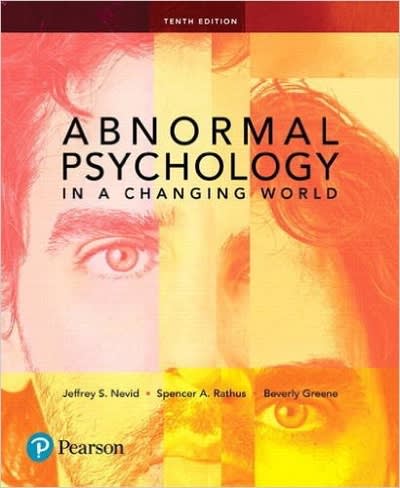Should children with the types of behavior problems that lead to a bipolar diagnosis be treated with
Question:
• Should children with the types of behavior problems that lead to a bipolar diagnosis be treated with powerful psychiatric drugs or by other forms of treatment? Explain There was a knock at her bedroom door. Six-year-old Claire had been happily watching goofy videos on her favorite website, JibJab (Egan, 2008). She had barricaded the door, using her toy chest and then piling on toys and other weighty objects. “If it’s my brother,” she said to a visiting journalist, “don’t open it.” She then said that she didn’t care if she was being mean, but she couldn’t trust her brother. Her brother, Claire said, always jumps out in a bad, scary way.
Her brother, 10-year-old James, had been diagnosed with bipolar disorder two years earlier. Like other children with a bipolar diagnosis, James had a history of aggressive behavior and episodes of explosive rage. There were times he would reach out to his mother, craving attention, but then suddenly explode into a rage, storming away from her, but later returning, seeking to connect, cuddle, and even cling to her. A decade or so ago, a child like James might have been diagnosed with ADHD or ODD—but in the 1990s, many professionals began diagnosing children like James with bipolar disorder, a diagnosis that previously had rarely been applied to children. As the diagnosis of childhood-onset bipolar disorder exploded in recent years, so too did the use of powerful drugs such as antipsychotics, anticonvulsives, and lithium that are used in treating adult forms of bipolar disorder
Step by Step Answer:

Abnormal Psychology In A Changing World
ISBN: 9780134484921
10th Edition
Authors: Jeffrey S Nevid, Jeffrey S Nevid PhD, Spencer A Rathus, Beverly Greene, Beverly Greene PhD






